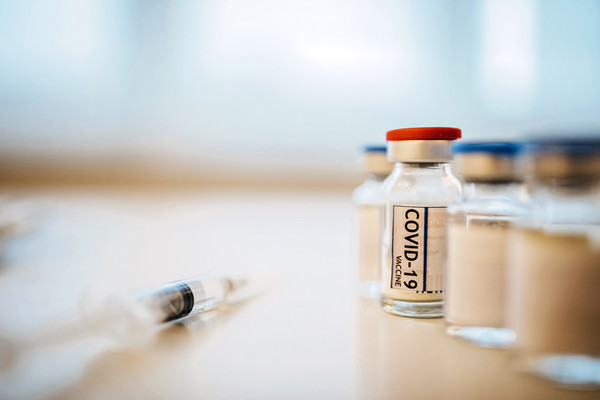With the Covid-19 outbreak affecting the global community and economy, the recent news on various approvals for Covid-19 vaccines has raised hope among the public.
At the moment, the big pharma -- such as Pfizer, AstraZeneca and Johnson & Johnson -- have already received emergency use authorization for vaccination in several countries, with some of them starting vaccination in earnest.
However, it is difficult to say that the vaccine development is over just yet because there are still concerns about side effects as none of the vaccines has undergone long-term trials. There is a growing need for an ultimate vaccine without side effects.
Korean biopharmaceutical companies draw attention in line with such demands as they enter phases 2 and 3 clinical trials related to their Covid-19 treatment and vaccines. Some of them have gone on to say that they will be able to distribute their medicines in the first quarter of this year.
The problem is that many pharmaceutical companies are pouring out information regarding their development prowess, making it difficult for the public to differentiate whether a company's announcement is factual or just an assumption.
Korea Biomedical Review has gathered examples that are nearing fruition.

Among the front-runners is Celltrion, which conducts a global phase 2 clinical trial of its antiviral antibody treatment candidate, called CT-P59.
The company has completed the administration of drugs for its global phase 2 clinical trial and applied for conditional approval to the Ministry of Food and Drug Safety after confirming the trial's intermediate results.
According to officials from the drug ministry, they will aim to shorten the existing approval processing for CT-P59 from the conventional 180 days to 40 days for rapid approval and review.
This means that the drug can receive approval as early as February of next year.
To bring the treatment to patients’ right after approval, the company has finished manufacturing the initial dose to distribute the drug immediately after approval.
Celltrion Group Chairman Seo Jeong-jin expressed his hopes to make Koreans free from face masks by this spring during the Healthcare Innovation 2020 Forum.
GC is also one of the top contenders to become the first company to commercialize a locally developed vaccine.
The company's candidate, GC5131A, is a plasma therapy made by collecting plasma from Covid-19 patients in the recovery phase, fractionating immune proteins containing antibodies, and concentrating them at a high concentration.
The company is currently conducting clinical trials at 12 hospitals, including Samsung Medical Center. Hospitals use the candidate after the Ministry of Food and Drug Safety granted a separate therapeutic use approval in October of last year.
The approval made GC's therapy the world's first plasma treatment for patients at a medical institution, not a clinical trial site.
As of Dec. 21, nine medical institutions have received the go-ahead to administer the candidate in 19 separate cases.
Local companies are also producing good results for their Covid-19 drug-repurposing research.
Drug repositioning is a method of developing new drugs by identifying new indications for already commercialized medicines or those in the clinical stage. Companies can quickly develop new drugs at a relatively lower cost using this method compared with existing new drug development strategies.
Such drugs include Daewoong Pharmaceutical's reflux esophagitis treatment Foistar, Shinpoong Pharmaceutical's antimalarial drug Pyramax, and Chong Kun Dang's blood anticoagulant and acute pancreatitis drug Napabeltan.
Daewoong plans to complete phase 2 clinical trials of Foistar within this year. As soon as it completes the phase 2 clinical trial, the company intends to apply for local and overseas conditional approval.
Shinpoong's Pyramax is undergoing phase 2 clinical trials in Korea and South Africa. The company's candidate has already shown strong effects in suppressing the Covid-19 virus in the pre-clinical stage.
Chong Kun Dang's Napabeltan has received approval for a large scale phase 3 global clinical trials in Australia and India, involving 2,400 people. The company has proven its efficacy through an interim evaluation of its phase 2 clinical trials in Russia.
Chong Kun Dang is consulting with the Korean regulators to complete the clinical trial within this year and apply for conditional approval in Korea in January of next year.
Despite major progress from local pharmaceutical companies in developing a viable treatment option, Covid-19 vaccine development in Korea is relatively slower than the drug development activities, and experts expect such vaccines to roll out in early 2022.
Genexine's DNA vaccine candidate is leading the pack, as the company presented the results of its phase 1 clinical trial of its vaccine candidate, GX-19, in December of last year.
Clinical results showed that the vaccine showed higher antigen-specific T-cell immune responses than those in the recovery phase in terms of immunogenicity. There were almost no systemic or severe adverse side effects, and the incidence of mild adverse reactions was also less than 5 percent.
SK Bioscience's Covid-19 vaccine is a recombinant protein vaccine, which uses a method of making fragments of viral proteins and injecting them into the human body as antigens.
The company received the go-ahead to conduct phase 1 clinical trials from the food and drug safety ministry on Nov. 24 of last year. The trial aims to evaluate the vaccine's safety, tolerability, and immunogenicity in healthy adults aged 19 to 55 at Seoul National University Hospital and Seoul National University Bundang Hospital.
Even if a locally developed vaccine completes all clinical processes, it will be inevitable that the nation would have to rely on overseas vaccines for a long period, considering the approval procedure and establishing a distribution environment.

